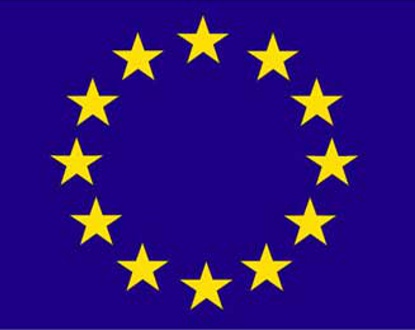On May 9th, Europe Day will be celebrated as it is every year. This date was chosen in remembrance of the declaration made by the French Minister of Foreign Affairs, Robert Schuman, who, under the instigation of Jean Monnet, then the General Commissioner of the Plan, proposed on May 9, 1950, that the European countries, which had fought each other in 1914-18 and 1939-45, jointly manage their coal and steel resources in an organization open to other European countries willing to join.
This proposal, known as the “Schuman Declaration,” is considered the birth act of the European Union.
Six countries responded to the call and created, through the Treaty of Paris on April 18, 1951, the European Coal and Steel Community (ECSC): Germany, Belgium, France, Italy, Luxembourg, and the Netherlands.
During the same European Council, the countries of the European Union adopted other symbols of their unity: a flag with twelve stars and a European anthem.
Since then, a single European currency, the euro, and a motto, “United in diversity,” have also emerged.
Brigitte Ferrari, President of the European Movement of Alpes-Maritimes:
“Europe Day is an opportunity for activities and festivities that bring Europe closer to its citizens and its peoples to each other. Associations, schools, and citizens mobilize to celebrate Europe Day. Numerous events of varying scales are organized in cities and schools on the initiative of associations, teachers, local authorities… Faithful to this tradition, the European Movement of Alpes-Maritimes organizes a number of events, announced in the agenda below.
The values of Europe will be the focus of these various events, with democracy foremost.
Even if the title and conference by Jean-Luc Sauron may provoke controversy, as many citizens feel that European institutions do not meet the classical criteria in this area, we should not forget that the European Union consists of 27 member states whose democratic nature is beyond doubt.
The recent events in the Maghreb, and elsewhere, demonstrate that democracy still needs to be won by some peoples.
Today, Europe is 27 states that live together and, strengthened by a common history, culture, and economy, share their democratic experience. For a European citizen, freedom, living conditions, protection systems, and rights are far more extensive than in most other countries worldwide.
More than ever, European democracy must continue to evolve, despite its current shortcomings and the challenges inherent to globalization, the risks of nationalist withdrawal, the rise of extremists.”
What could be more delightful than celebrating Europe with music?
The initiative taken by the municipality of Cagnes-sur-Mer, for the second consecutive year, to hold a European Concert, testifies to the will to share our common cultural heritage.
This concert, with its program (“Symphony of the New World” by A. Dvorak, “Aida,” “Il Trovatore,” “Otello” by Verdi) is a celebration of freedom.
How can we forget that this European space, which is the subject of so much criticism, is a space of peace and freedom, with its successive enlargements still bearing witness to it today.


